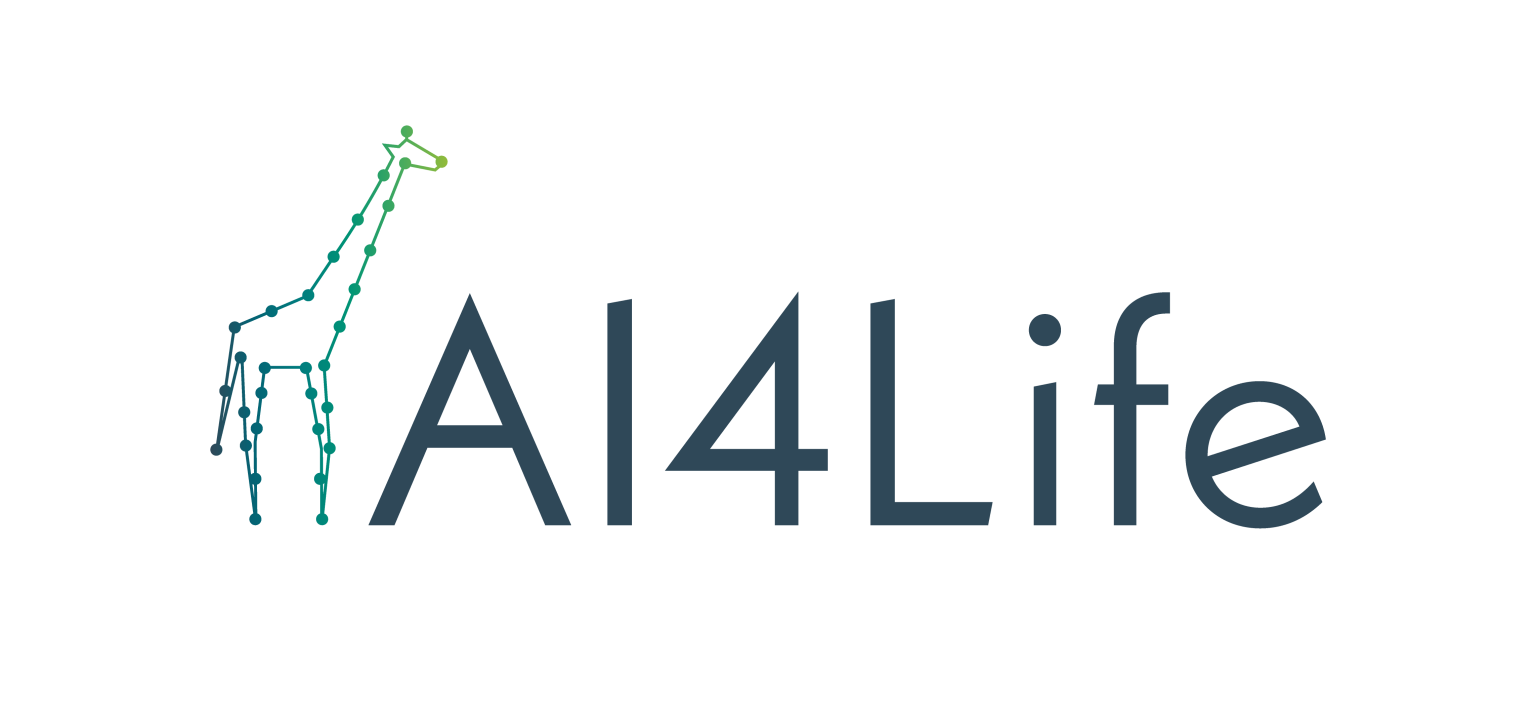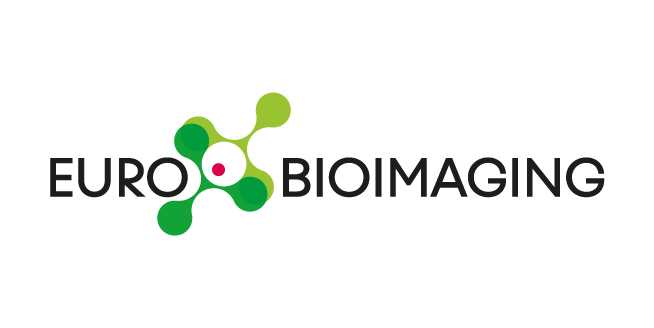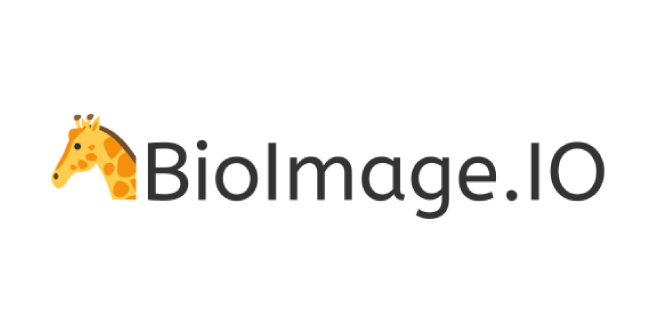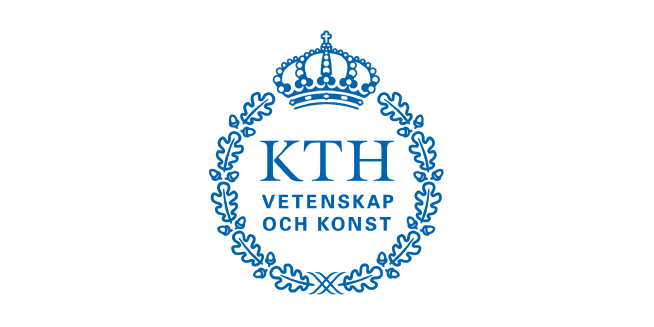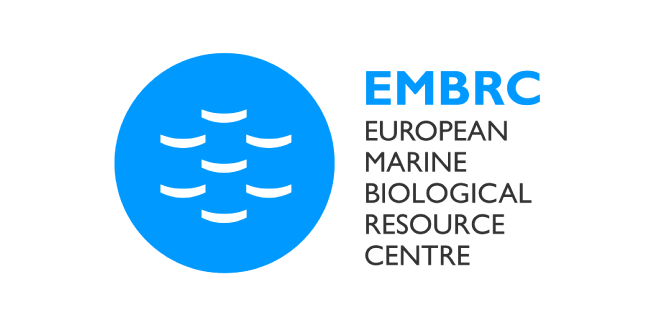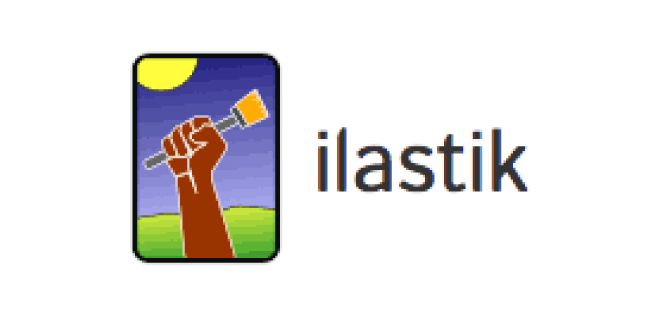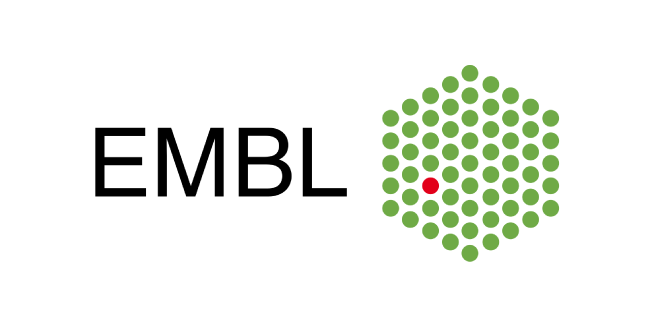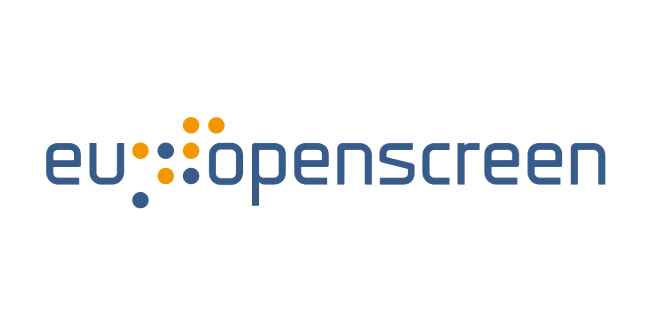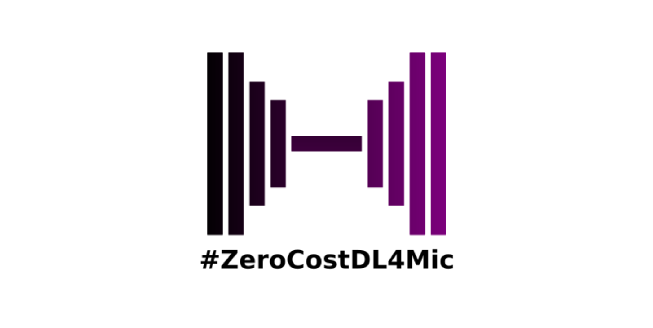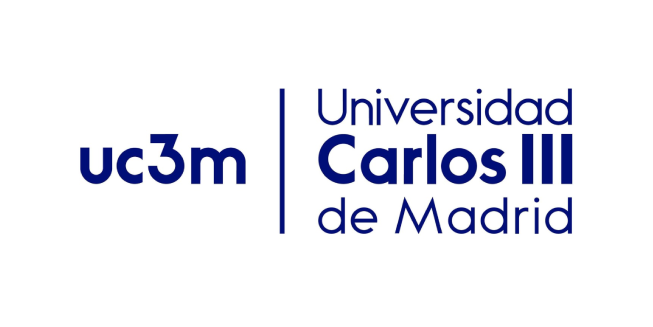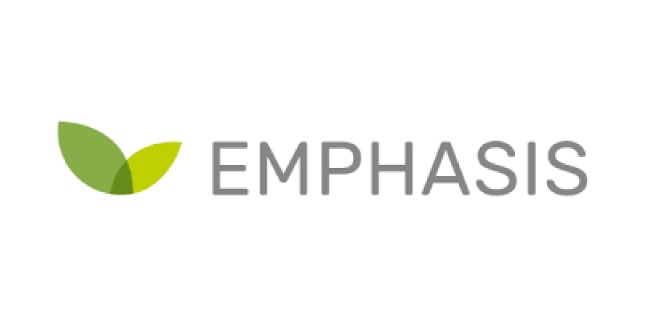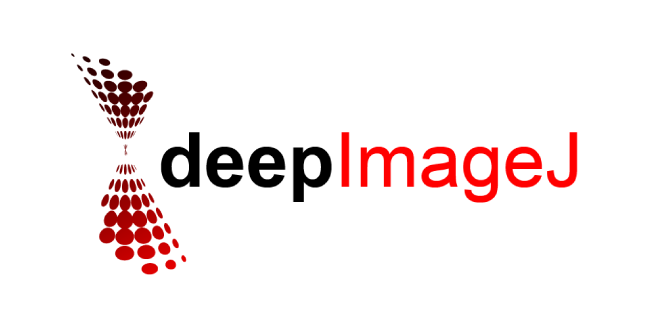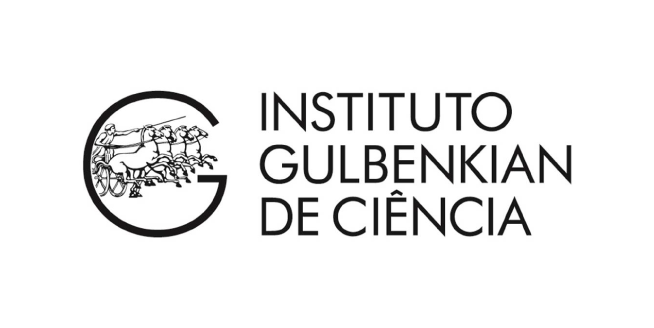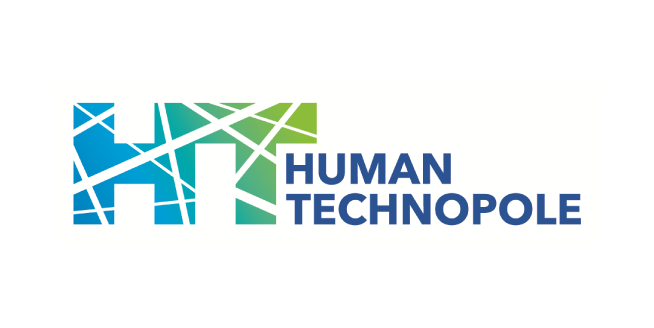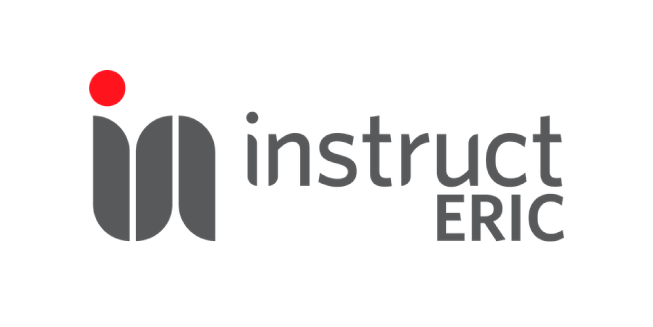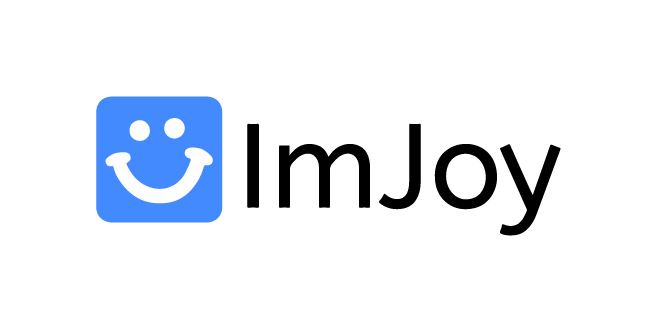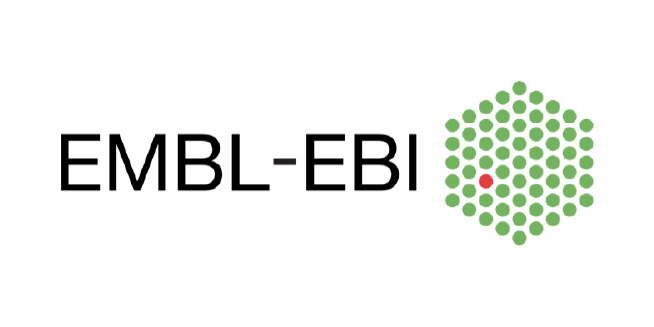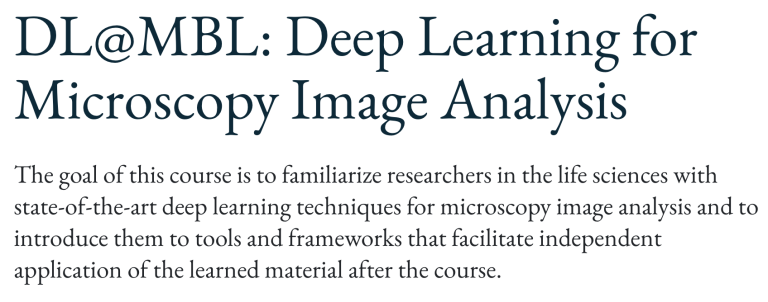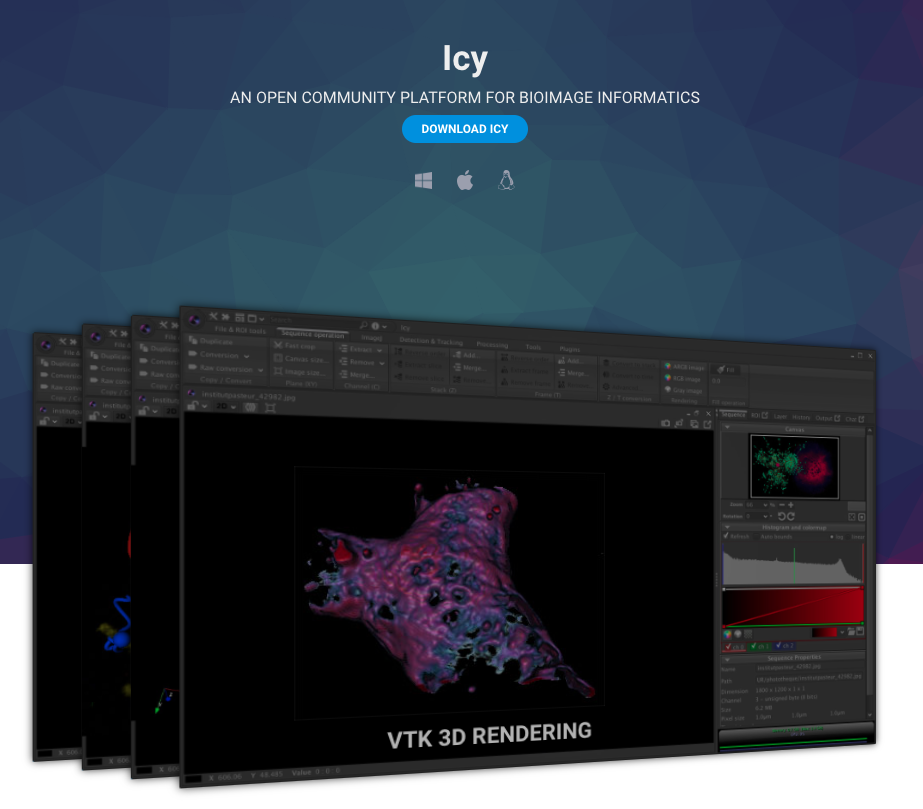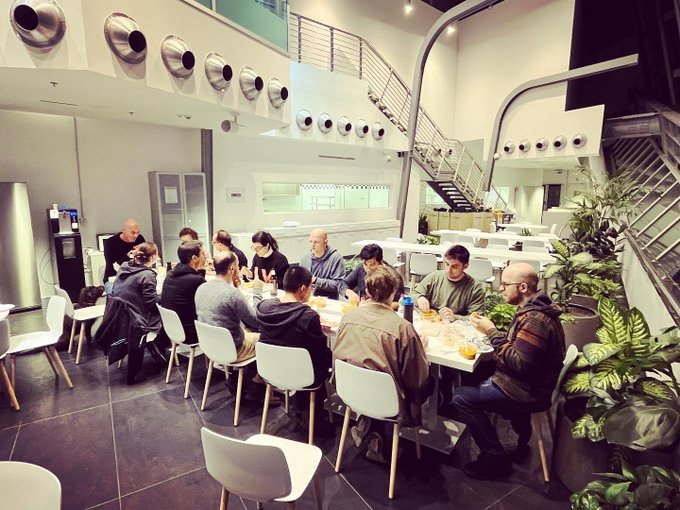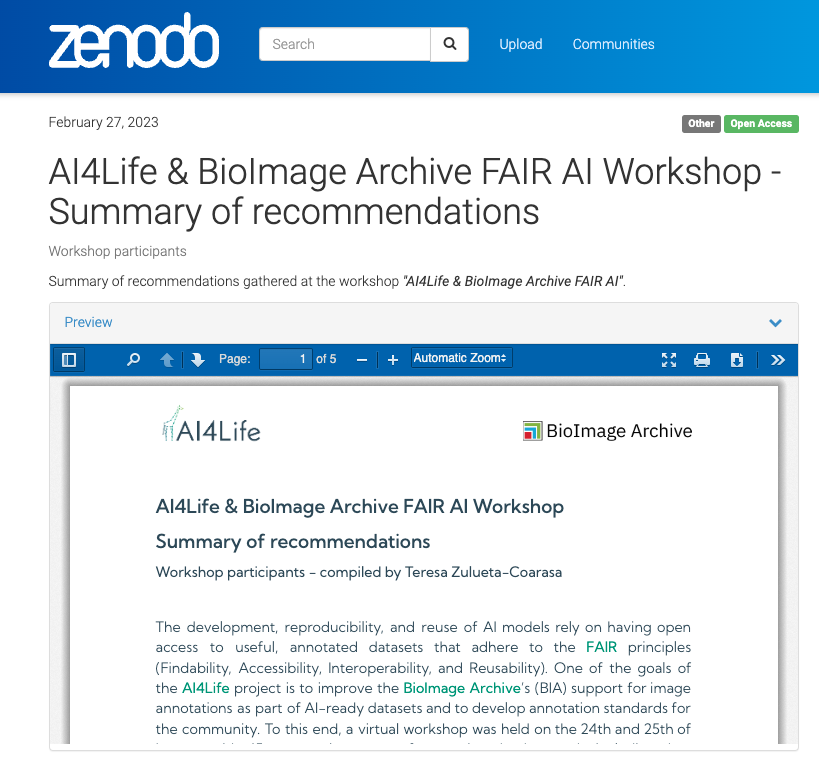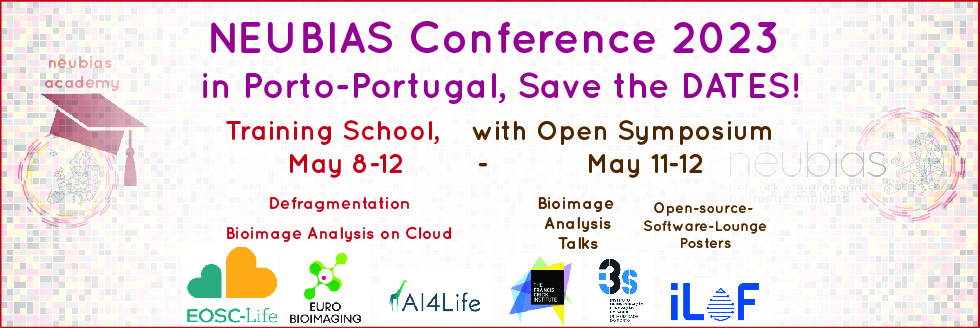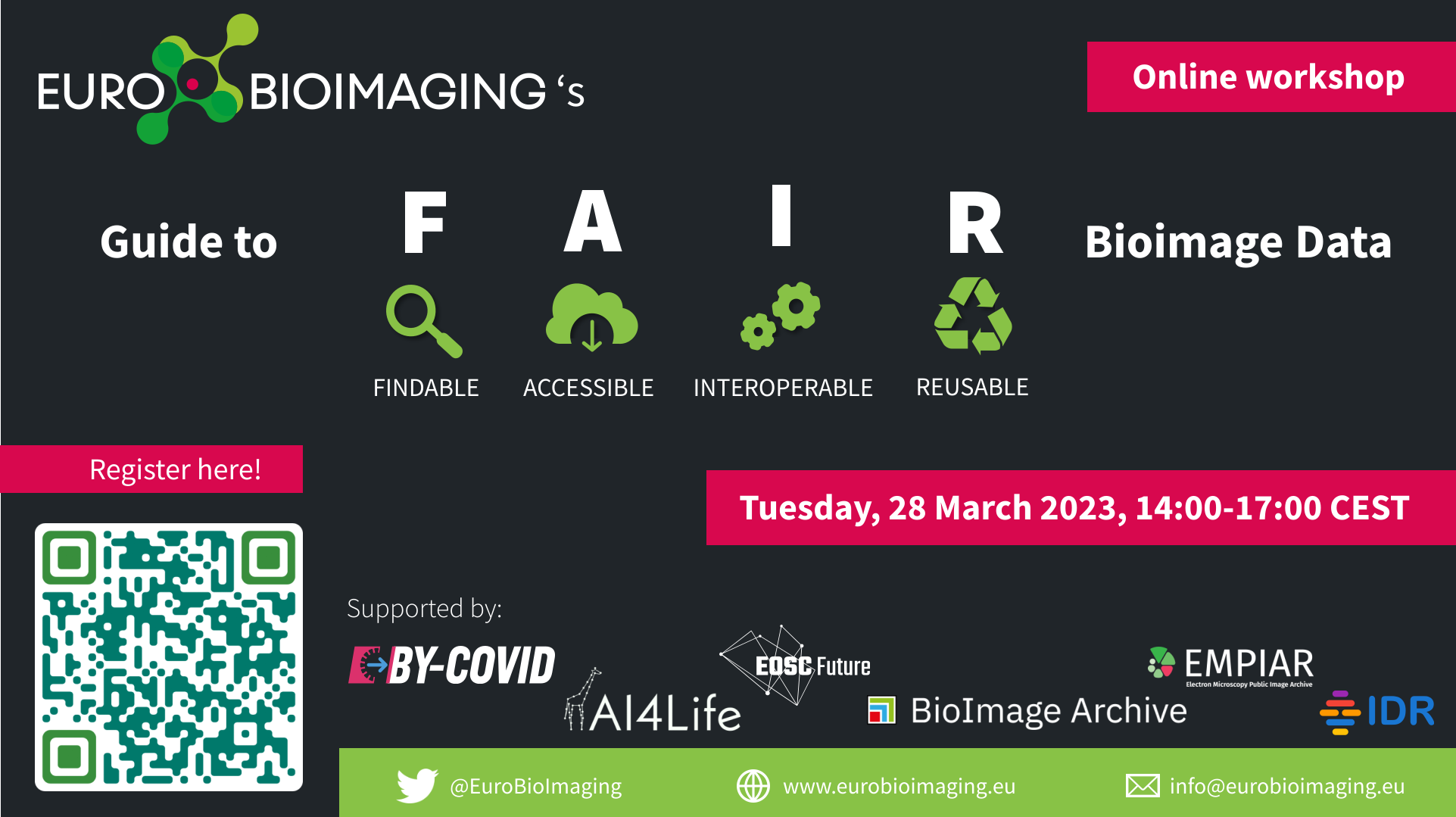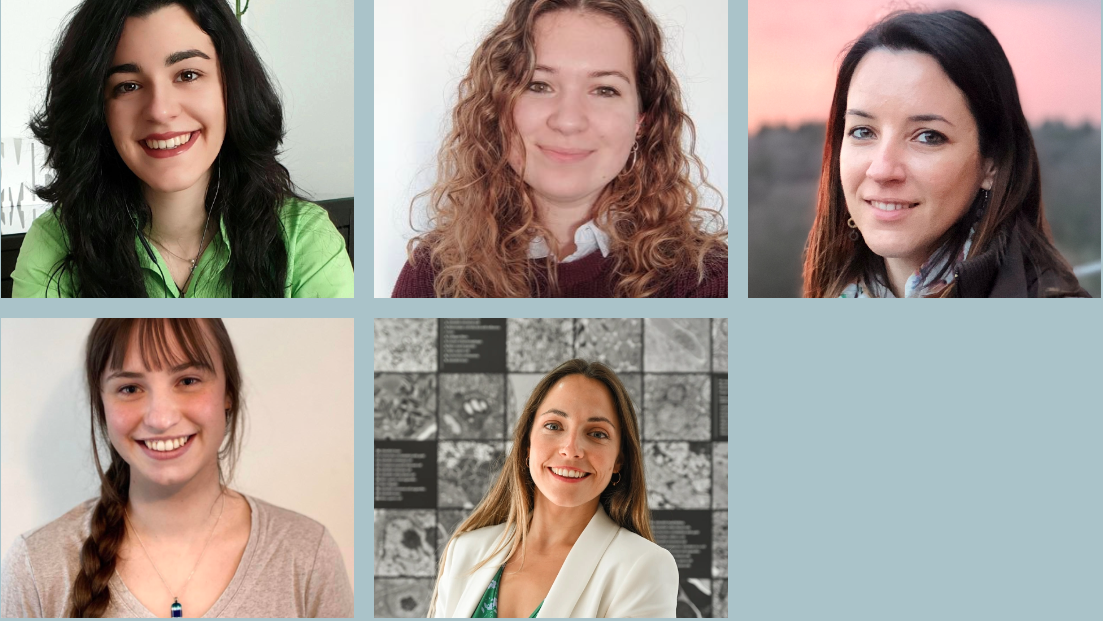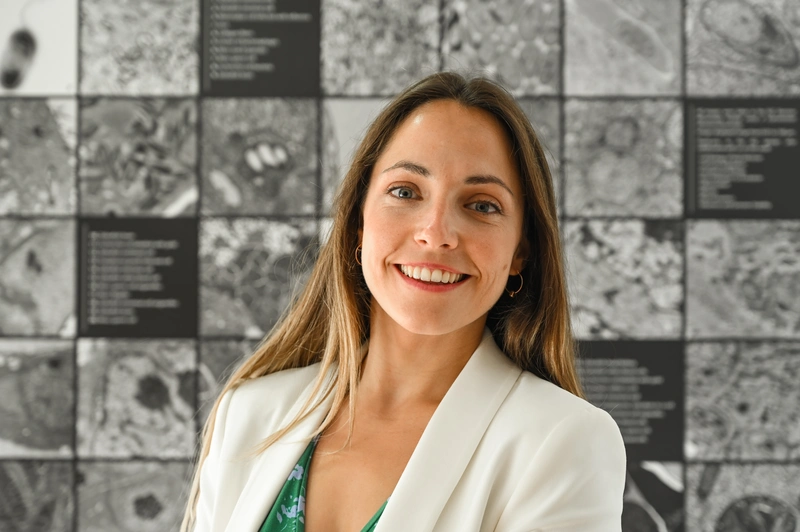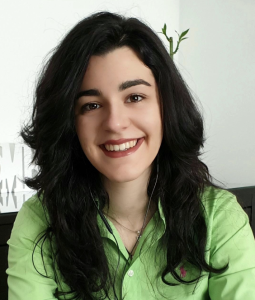AI4Life at Focus on Microscopy
14 April 2023
by Estibaliz Gómez de Mariscal
AI4Life was present this year at the Focus on Microscopy (FOM) 2023 conference in Porto, Portugal.
FOM is a yearly conference series presenting the latest innovations in optical microscopy and its applications to life sciences.
This year, the BioImage Model Zoo was presented again in one of the two dedicated oral sessions for image analysis under the title “BioImage Model Zoo: Accessible AI models for microscopy image analysis in one-click”. We highlight two of the most exciting discussion topics around AI4Life: “We need more deep-learning model benchmarks tailored for direct applications in life sciences” and “How can I upload my work to the BioImage Model Zoo”.
Remarkably, this year there was for the first time a dedicated section about smart microscopy where hybrid approaches using deep learning for adaptive optics and data-driven acquisitions were presented.
Tomorrow's slides for #FOM2023 are already in the oven! I'll be presenting the great collaborative project @bioimageio in the #ImageAnalysis session at 14:00🦒🔬 Also, do not miss the work from colleagues in @HenriquesLab 😎 https://t.co/PiuGbOHo6S pic.twitter.com/g1CZuCPXL6
— Estibaliz Gómez de Mariscal, PhD (@gomez_mariscal) April 2, 2023
#FOM2023 comes to an end today and #AI4Life was represented by a @gomez_mariscal from @HenriquesLab and her fantastic talk on "BioImage Model Zoo: Accessible AI models for microscopy image analysis in one-click" @bioimageio 🦒 pic.twitter.com/mYaoM1APEe
— AI4Life Team (@AI4LifeTeam) April 5, 2023
@gomez_mariscal in #FOM2023 presenting the #BioImageModelZoohttps://t.co/fQYKH8IKRV pic.twitter.com/TmQpz2K5te
— Ricardo Henriques (@HenriquesLab) April 3, 2023
